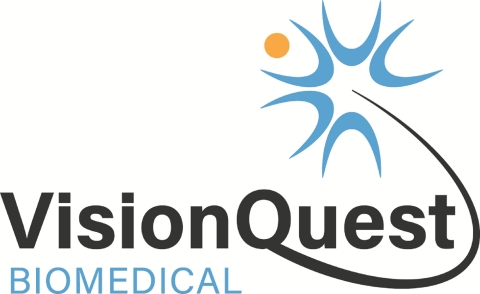VisionQuest Biomedical Inc. Gains FDA 510(k) Clearance for the Image Quality Analyzer Software
VisionQuest Biomedical Inc. Gains FDA 510(k) Clearance for the Image Quality Analyzer Software
ALBUQUERQUE, N.M.--(BUSINESS WIRE)--VisionQuest Biomedical Inc. (VisionQuest) announced today that the company has received 510(k) clearance from the United States Food and Drug Administration (FDA) to market the Image Quality Analyzer (IQA) software, which reduces unreadable images captured in teleretinal screening programs by retinal photographers.
The IQA is a software system intended for use in importing, displaying, analyzing and managing images acquired with digital fundus cameras. The patented software detects the most common causes of retinal imaging artifacts: bright crescents, blurriness, and poor illumination. The software then prompts the user to retake the image and provides clues for improving the image quality. The software can be used with both tabletop and portable retinal cameras.
Prior to FDA clearance, VisionQuest has used the IQA in the Clinicas del Azucar, a network of diabetes clinics in Mexico. IQA is used by nurses and medical technicians to ensure that the images they capture to screen for diabetic retinopathy, the most common cause of blindness in the working age population, are of sufficient quality for interpretation by a human reader or by artificial intelligence programs. Thanks to the IQA, 98% of the cases imaged at Clinicas del Azucar can be read without the need for pupil dilation.
“Good image quality is the cornerstone of a successful diabetic retinopathy screening program. The IQA ensures that images can be captured by minimally trained technicians, and that unnecessary dilation is avoided to capture adequate images,” said Simon Barriga, Ph.D., Founder and CEO of VisionQuest. “Other systems that use AI for detection of diabetic retinopathy need to dilate between 13% and 29% of patients, which severely hampers their adoption in primary care or retail clinics.”
The IQA was developed through funding provided by the National Eye Institute (NEI), which is part of the National Institutes of Health (NIH). “NEI’s funding allowed us to bring the product from concept to a fully tested and validated system that will help reduce the burden of blindness and increase accessibility of retinal exams,” said Peter Soliz, Ph.D., Founder, CTO, and Chairman of VisionQuest. “NIH’s Small Business Innovation Research Grant (SBIR) program has allowed us to build a pipeline of healthcare products of which the IQA is the first to receive clearance in the US.”
The IQA will also power two of VisionQuest’s pipeline products: EyeStar and ASPIRE. EyeStar detects diabetic retinopathy, the most common complication of diabetes and the leading cause of blindness in the working-age population. EyeStar has been deployed in fifteen clinics in Mexico and has screened over 36,000 people with diabetes for eye disease. ASPIRE uses a smartphone imaging device and AI software to detect malarial retinopathy, a highly specific sign of cerebral malaria, which kills over 100,000 African children every year. ASPIRE is currently being evaluated in Malawi, Kenya, and Zambia. Neither EyeStar nor ASPIRE have been cleared by the FDA.
About VisionQuest Biomedical Inc.: VisionQuest develops and delivers innovative artificial intelligence–based imaging technologies that increase access to health care for the people who need it the most. We aim to serve patients and providers in the most humane, efficient, and cost-effective ways possible.
Contacts
Simon Barriga
VisionQuest Biomedical Inc.
2501 Yale Blvd. SE, Suite 301
Albuquerque, NM 87106
505-508-1994
sbarriga@visionquest-bio.com
